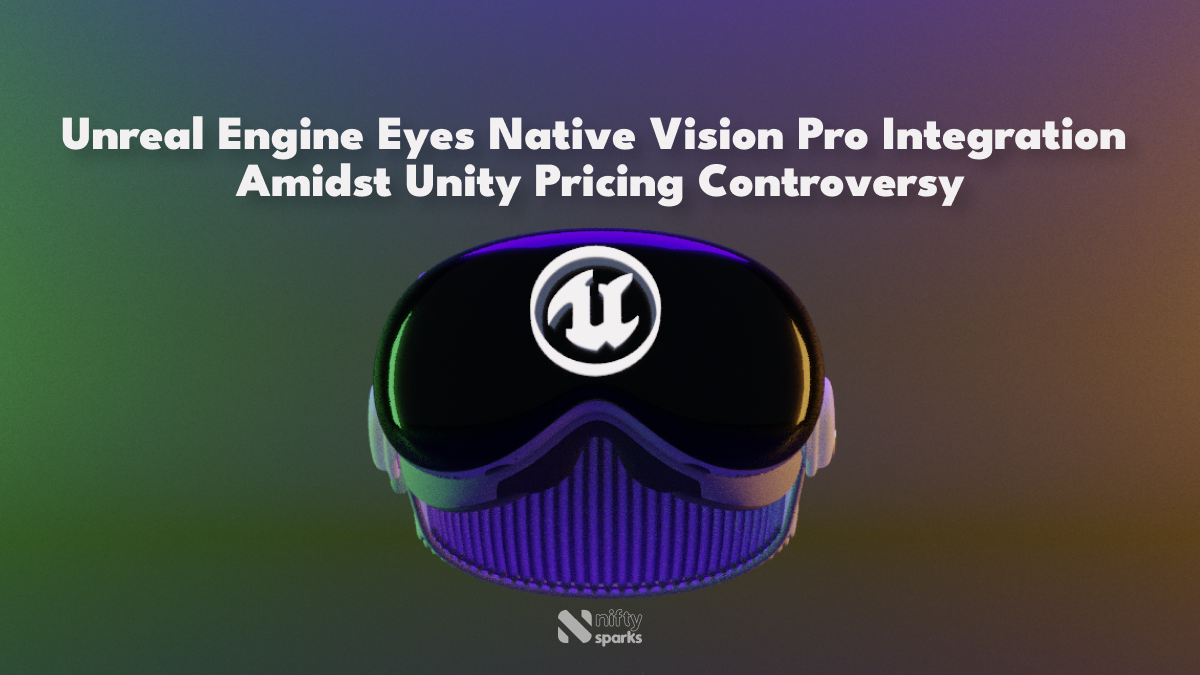Epic Games Eyes Unreal Engine Integration for Apple’s Vision Pro Amidst Unity Pricing Controversy and Legal Strife
In a strategic move that could reshape the gaming industry, Epic Games, the creator of the widely-used Unreal Engine, is reportedly considering native integration with Apple’s forthcoming Vision Pro.
The mixed-reality headset, slated for a 2024 release, could greatly benefit from this integration, but the timing of this development is particularly noteworthy, as it comes amidst ongoing legal disputes between Apple and Epic Games and a recent controversy surrounding changes to Unity’s pricing structure.
The Current Scenario
Victor Lerp, Unreal Engine XR Product Specialist at Epic Games, has indicated that the company is actively exploring native support for Apple Vision Pro.
This follows Unreal Engine 5.2’s native support for Apple Silicon Macs.
Meanwhile, Unity’s recent pricing changes have led some developers to consider alternatives like UE and Godot.
The Unity Controversy: A Boon for Unreal Engine?
Unity’s recent pricing changes have sparked controversy in the developer community. The new ‘Unity Runtime Fee’ charges developers each time a game using the engine is downloaded, beginning when sales reach a threshold of $200,000 in revenue over 12 months and over 200,000 total installs.
This move has been met with significant backlash from developers who are concerned about the potential impact on their revenues. Many indie developers have already announced their intention to switch platforms for future releases.
In this context, Epic Games’ move to provide native Unreal Engine support for Apple’s Vision Pro could be seen as a strategic decision to capitalize on Unity’s current predicament. By offering an attractive alternative at a time when Unity is facing backlash, Unreal Engine could potentially attract developers looking for other options.
Legal Disputes Between Apple and Epic Games
It’s worth noting that Epic Games initiated a lawsuit against Apple over its App Store practices, arguing that Apple’s App Store is a monopoly and criticizing the 30% commission that Apple charges on in-app payments. In response, Apple argued that its App Store does not violate antitrust laws.
In September 2021, Judge Yvonne Gonzalez Rogers issued a permanent injunction in the Epic v. Apple case. The order stated that Apple must allow developers to include in their apps and their metadata buttons, external links, or other calls to action that direct customers to purchasing mechanisms. Despite this ruling, an appeals court mostly sided with Apple over its App Store rules.
Concluding Thoughts
This development could significantly alter the landscape of mixed-reality, paving the way for unparalleled experiences. However, it will be crucial to monitor how the legal disputes between these tech giants unfold as it could impact this collaboration.
Additionally, the ongoing controversy surrounding Unity’s pricing changes may also influence developers’ choice of game engine and could potentially lead to more developers migrating towards UE.
For details and the latest updates on the Unity pricing controversy, you can read the article below 👇
Get the latest immersive tech news, events, jobs… 👇
Your support helps us continue providing high-quality content.
If you found this article insightful and wish to stay updated on the latest trends in immersive technology, we invite you to subscribe to our newsletter below. 👇





